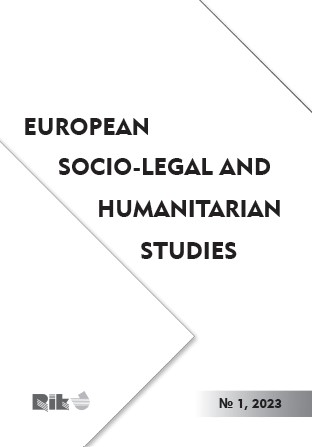FREEDOM OF EXPRESSION ON THE INTERNET
FREEDOM OF EXPRESSION ON THE INTERNET
Author(s): Tereziia PopovychSubject(s): Media studies, Human Rights and Humanitarian Law, Social Informatics, ICT Information and Communications Technologies
Published by: Editura U. T. Press
Keywords: freedom of expression; views; information; obligations; restrictions;
Summary/Abstract: The aim of the work is to analyze the features of the implementation of the right to freedom of expression on the Internet. The methodological basis of the study is a system of methods, scientific approaches, techniques and principles that were aimed at achieving the study objectives. Universal, general scientific and special legal methods were used. Thus, for example, the methods of analysis, synthesis, induction and deduction allowed to generalize the acquired knowledge, which became the basis of scientific intelligence. Freedom of expression on the Internet is a complement and expansion of the possibilities for exercising such freedom in objective reality, outside the virtual sphere. Internet users have the right to use freedom of expression, including the right to receive and exchange information. The Internet has undoubtedly created unprecedented opportunities for the exchange of information. At the same time, this access to knowledge inevitably involves serious risks and threats, such as threats of violence and hate speech, as well as coordinated campaigns to spread disinformation, trolls and bots. Taking into account that the right to freedom of expression online is not absolute, there may be legislatively established restrictions on its implementation (censorship, Internet filtering, blocking of Internet resources, etc.) for various reasons – national security, territorial integrity or public safety, ideological or religious beliefs, for the prevention of disorder or crime, for the protection of health or morals, human rights protection, etc. At the same time, the main criterion for the necessity of a particular restriction in a democratic society is its proportionality. That is, the restriction should be always necessary to effectively protect legitimate goals.
Journal: European Socio-Legal and Humanitarian Studies
- Issue Year: 2023
- Issue No: 1
- Page Range: 96-102
- Page Count: 7
- Language: English

